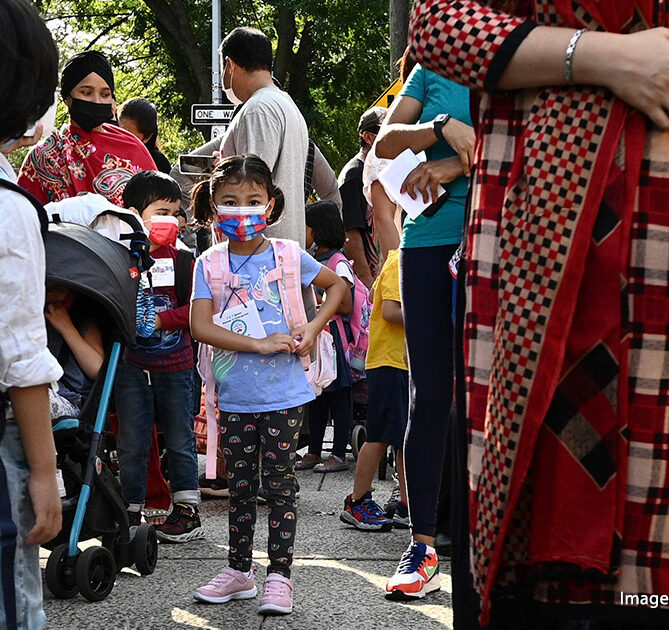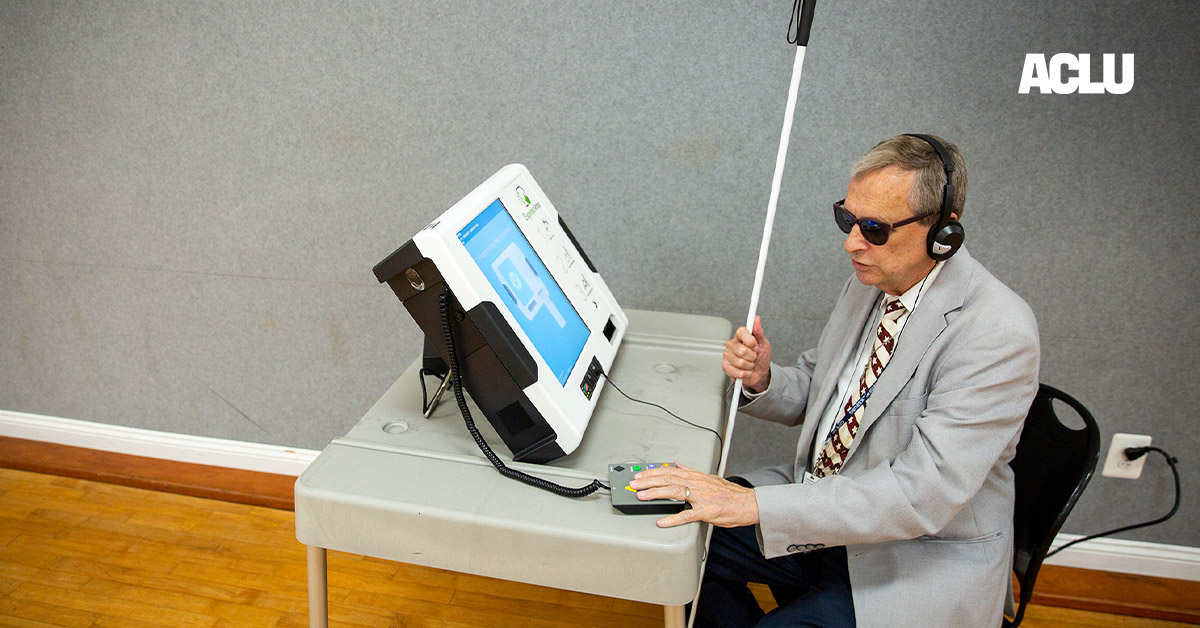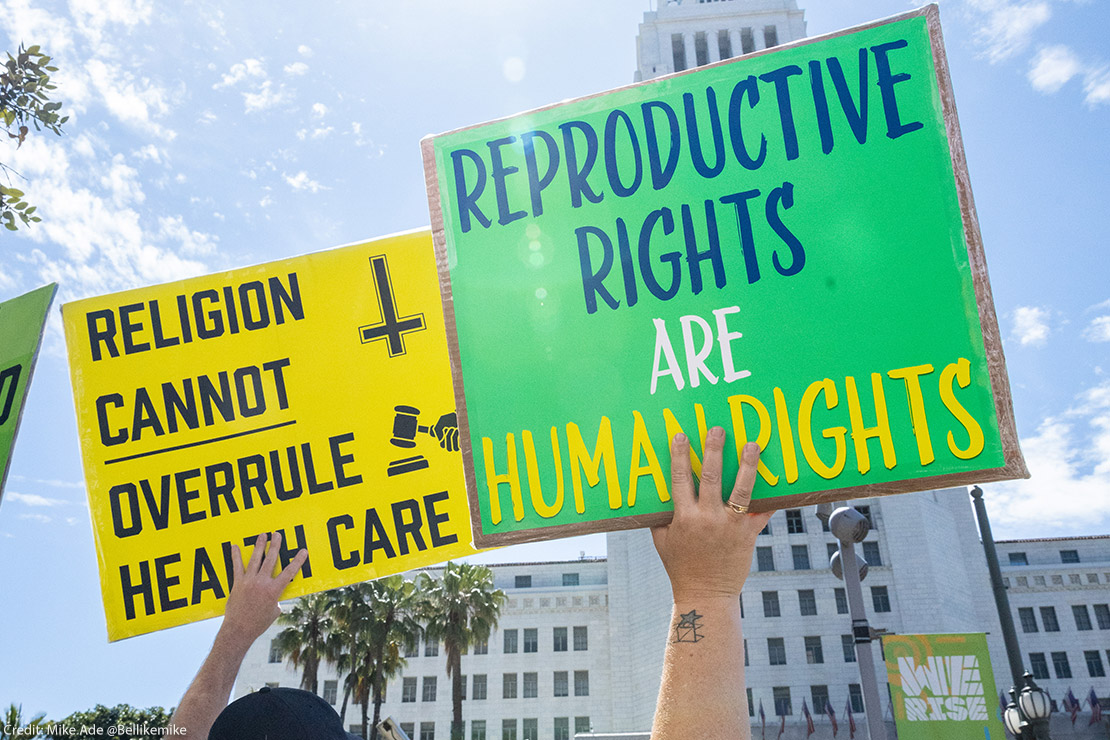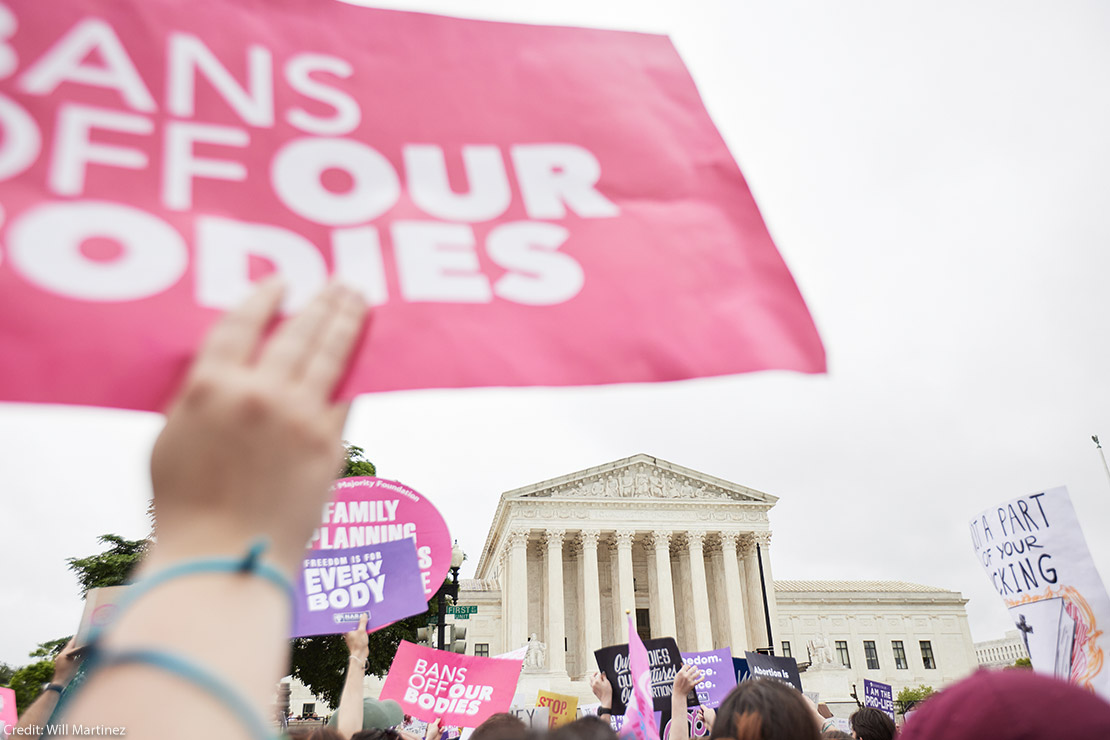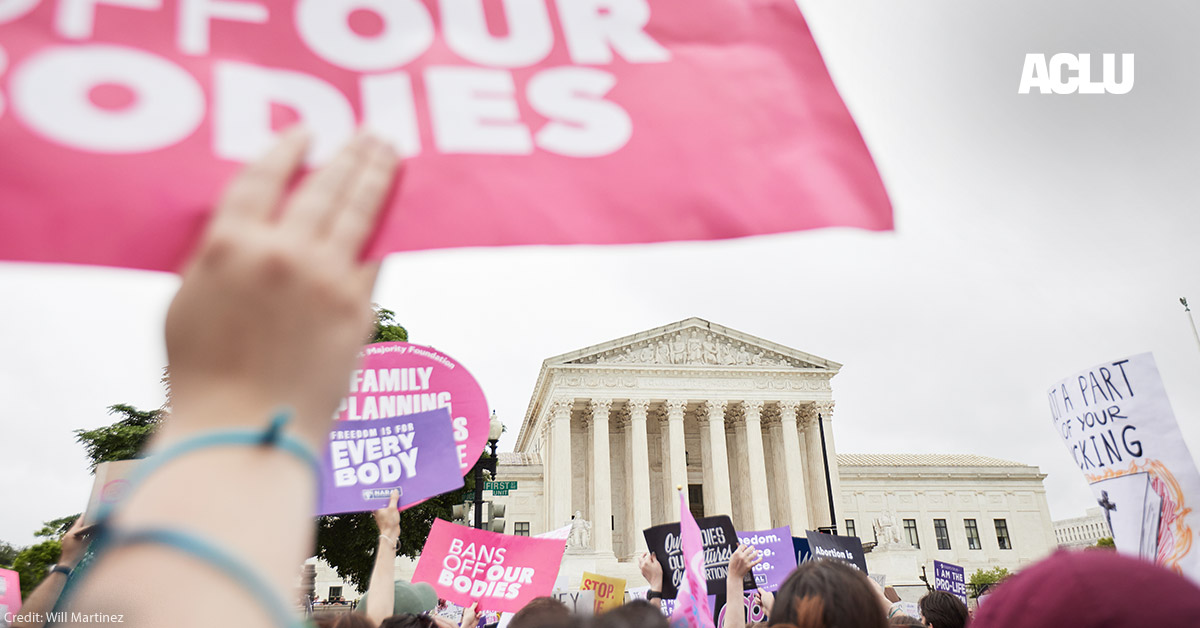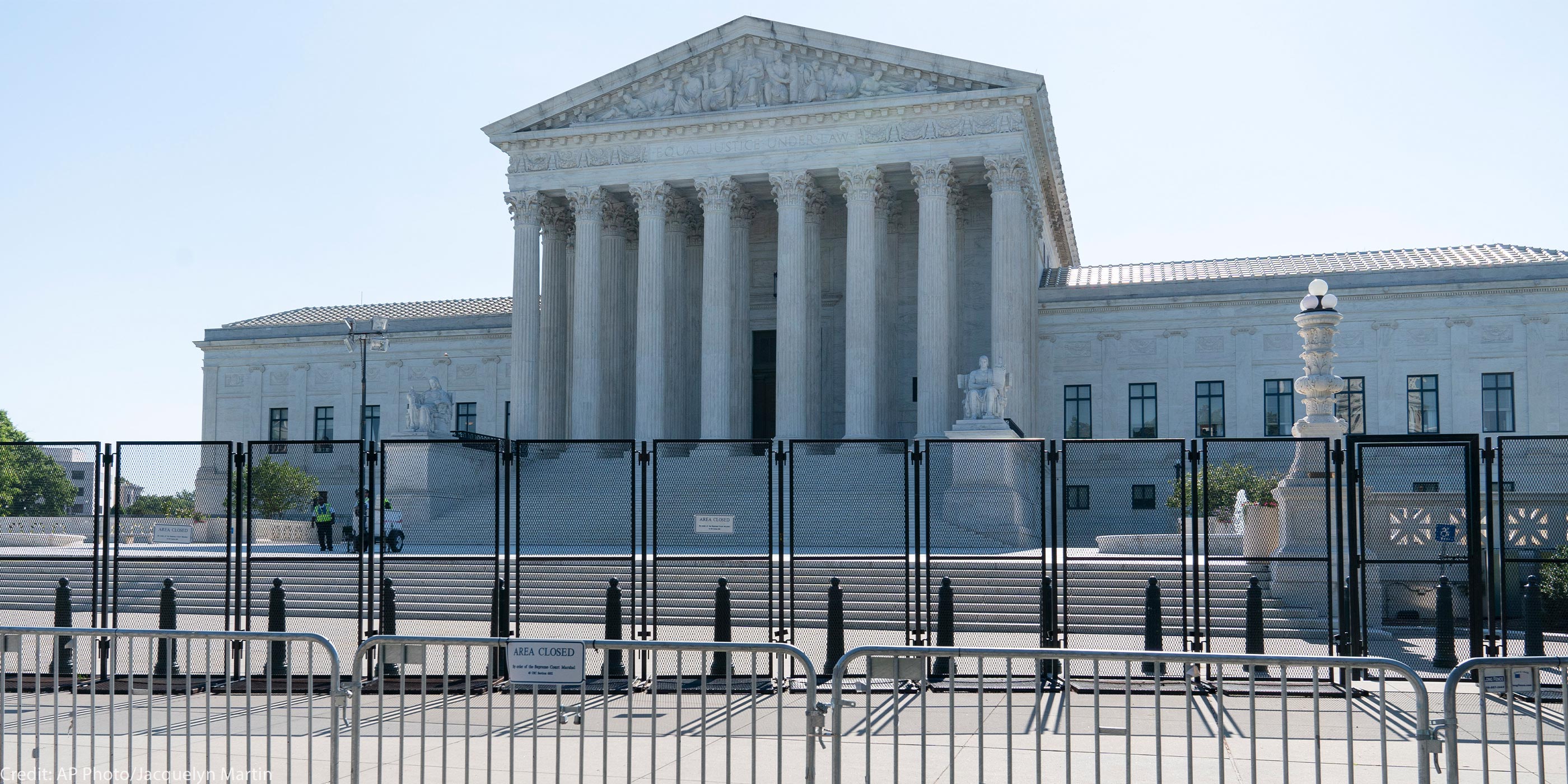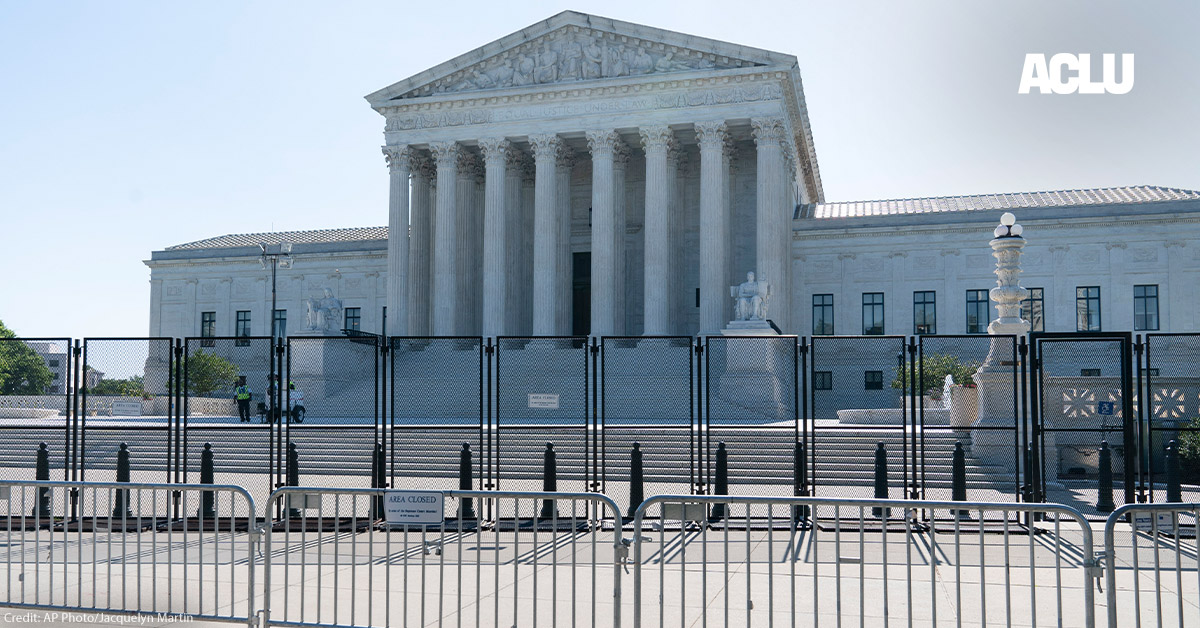People with disabilities have a right to equal access under the law, including equal access to voting, education, and protections in the criminal legal system. But too often, policies and practices at the polls, and in schools, jails, and prisons violate our fundamental rights. These violations hinder access to the ballot, risk students’ health and safety, and trap people with disabilities in the carceral system.
At the ACLU, we’re fighting back in the courts and in legislatures to help people with disabilities access their rights. In honor of Disability Pride Month this July, we’re highlighting a few of our recent battles and wins for disability rights across the country.
I. VOTING
More than 250 bills restricting access to voting have been introduced in 43 states since the 2020 election. While most of these laws are intended to suppress the votes of people of color, the effect of these laws falls most heavily on low-income people with disabilities — who are very often in communities of color. People with disabilities have faced years of barriers to voting, including inaccessible polling sites, inaccessible online voter registration, and inaccessible voting machines that polling staff can’t operate. Now, people with disabilities are also facing additional barriers at the polls and with voting by mail. While in some states, the pandemic has made voting by mail more accessible, in others, politicians have passed voter suppression bills that make casting a ballot more difficult or even impossible for voters with disabilities — especially for those who are Black.
The ACLU has active litigation tackling this issue in many states. In Georgia and in Texas, we’re challenging voter suppression laws that make it harder for all residents to vote — especially for people with disabilities in low-income communities of color. We argue that these restrictions not only violate the Voting Rights Act and the Constitution, but also violate the Americans with Disabilities Act and Section 504 of the Rehabilitation Act. We won’t stop fighting until every eligible voter has equal access to the ballot.
II. EDUCATION
Students with disabilities have a right to a public education, with their peers, and without risking their health and safety. This includes students whose disability makes them more vulnerable to severe complications from COVID-19. However, in the highly charged political climate we are living in, some states chose to prohibit schools from being able to require face masks — even at the height of the pandemic. This forced students with disabilities and their families to make an impossible decision: go to school and risk contracting COVID-19? Or stay home and lose out on their education?
The ACLU — along with our grassroots partners and affiliates — sued on behalf of these students with disabilities. We successfully argued that the ADA and the Rehabilitation Act require public schools to provide equal access for students with disabilities. They cannot segregate students with disabilities by making them go to school remotely. And, they must provide reasonable modifications — even to state laws — if this is necessary to give a student with a disability equal access to their education.
In South Carolina, we challenged one such state ban last year in federal court alongside our allies — and won an order blocking its enforcement. The district court made it clear that the state’s ban on school mask mandates violates federal disability rights law because it discriminates against students with disabilities in violation of the ADA and the Rehabilitation Act.
In Iowa, we also filed suit challenging the state’s ban on mask mandates in schools and won in the district and appeals court. While the Eighth Circuit has since ruled that the injunction is moot — because students can now get vaccinations and treatment — our lawsuit helped instill important protections for students with disabilities at the height of the pandemic.
As the pandemic continues to evolve, states continue to challenge these rulings — but the ACLU will keep fighting to ensure all children with disabilities have equal access to their education.
III. INCARCERATION
Prisons and jails are the lands that forgot the ADA. People with disabilities have a right to reasonable accommodations for their disability while incarcerated, on probation, or on parole — but prisons and jails operate as if these laws don’t apply to them.
For example, for people who are deaf or hard of hearing, prisons and jails are required to provide access to American Sign Language (ASL) interpreters, real time captioning, pocket talkers, and other auxiliary aids and services. But they seldom do. When prisons fail to provide these accommodations, incarcerated deaf people may never be able to learn the rules of the prison, defend themselves in disciplinary hearings, or even hear meal call.
Without these services, incarcerated people with hearing disabilities also cannot communicate with guards, medical staff, counselors, and family. The lack of communication access can also leave those on probation or parole with an inaccurate or incomplete understanding of conditions and requirements, putting them at constant risk of being returned to prison as well as hindering their ability to re-integrate into society through access to employment, health, and housing. As a result, people who are deaf or hard of hearing tend to be imprisoned more often, incarcerated longer, and returned to prison more quickly than others.
In Georgia, we have filed suits against the state’s Department of Corrections and the Department of Community Supervision. These state institutions have repeatedly failed to provide appropriate communication access to deaf and hard of hearing people, in violation of the ADA, the Rehabilitation Act, and the Constitution.
Date
Friday, July 8, 2022 - 12:00pmFeatured image

